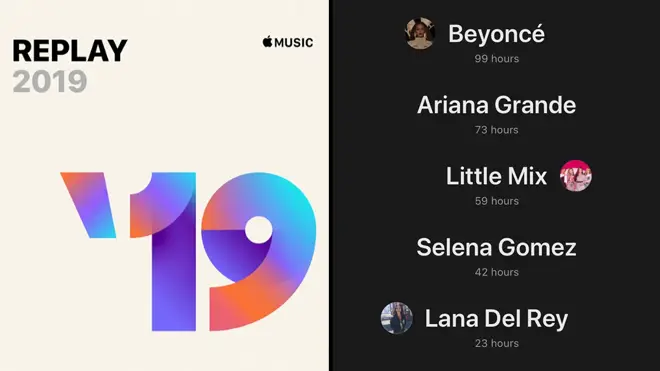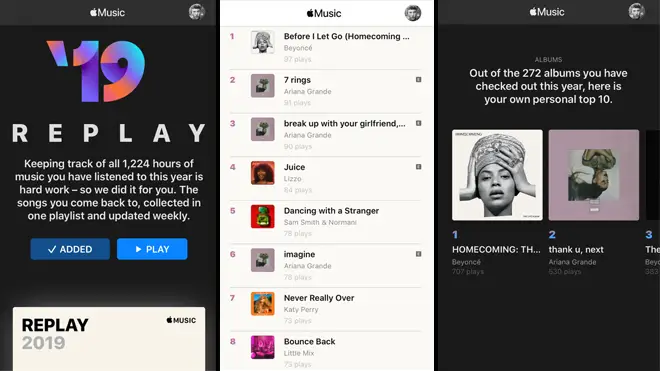Apple Music launches Replay and it reveals your most played music of 2019
14 November 2019, 16:28
Apple Music Replay 2019 shows you your end of year stats, most played songs and top artists just like Spotify Wrapped.
Apple Music has finally done it. After years of requests, it has introduced its own version of Spotify Wrapped called Replay.
Apple Music and Spotify are two of the biggest streaming services in the world. Both platforms have many attributes but, recently, Apple Music users have felt hard-done-by the fact that Spotify offers its users a popular feature that shows them exactly what their most played songs of the year and who their most played artists of the year are. Spotify launched Wrapped in 2017 and since then users have waited eagerly to find out what their end of year music stats are.
READ MORE: Best songs of 2019 playlist: The top new songs of the year so far
Naturally, this led people to demand that Apple Music make an equivalent feature and now they actually have.
How do you use Apple Music Replay and see your 2019 stats?

Apple Music Replay is a new feature which allows Apple Music users to get access to all of their most played stats. To use it all you have to do is visit the Apple Music Replay website, sign in to your Apple account and click "Get Your Replay Mix". It then immediately generates a selection of playlists based on your personal stats and tells you some key information you probably never knew about your listening habits.
YOU CAN ACCESS YOUR APPLE MUSIC REPLAY 2019 HERE
First of all, Apple Music Replay tells you exactly how many hours of music you've listened to this year. Then, it shows you a playlist of your top 100 most played songs this year along with exact play counts. It also reveals how many different artists you've listened to this year and who your most popular artists are. Better yet, it also tells you how many albums you've listened to and your Top 10 most played.
You can also add the playlists straight to your library.

Oh and to make up for lost time, you can also find out your Apple Music stats for 2018, 2017, 2016 and 2015.
We have no choice but to stan.






































